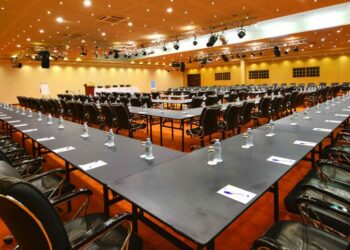DR-IAN CLARKE
Social media is a relatively new phenomenon, which has in recent years, changed how we view the world. For some people, such as Sheila Gashumba, her whole persona is viewed through the lens of social media. Sheila, who is only twenty-one years old, has hundreds of thousands of followers on platforms such as Twitter, Snapchat, Instagram and Facebook. However, this is the last thing that many of us would want, because it necessitates living one’s life in pictures, selfies, and tweets about every little trivial detail of our lives.
The stated aim of Mark Zuckerberg was to connect the world, and he has certainly gone a long way in accomplishing this. It used to be said that anyone in the world was only six degrees removed from any other person on the planet, but since Facebook we are only one or two degrees apart.
Personally I don’t really like social media because I feel it takes people out of real social interaction into a virtual world in which one does not have to develop relationships with real people.
Are we replacing real communities with virtual communities? The number of WhatsApp groups which are proliferating is staggering, but what is the point of most of these groups, and even those that should be meaningful, degenerate into inane chatter and sharing religious messages.
Does this type of communication develop relationships, or in this process of connecting with everyone, are we destroying authentic relationships?
Generally speaking, older people have been slower to take to social media, but one old person who has embraced it wholeheartedly is Donald Trump who uses it as his main method of communication, because he can reach his supporters without any filter. What we are getting is the real Donald Trump, though there are times when we would like to be spared the real Trump and allow him to have some filtering.
Another important advantage of social media for him is that he can put out his own ‘facts’ without the necessity of bothering with any fact checking. A good example was the size of the crowd at this inauguration. His ego is such that the crowd had to be the biggest in history (like his own ego), which became his facts that he put out. That this was not the real objective truth didn’t matter to him.
Social media is like an echo chamber because the people who read our posts are also the people who agree with us: those are the people we have ‘friended’ or are our followers. Thus social media actually amplifies differences and polarizes people rather than bringing them together in one big happy global community. Donald Trump is not tweeting for the benefit of his critics; he is tweeting to the 35% of Americans who are his loyal supporters.
The Arab Spring was in large measure fuelled by social media. It started in Tunisia with Mohamed Bouazizi setting himself on fire as a protest against the local municipality officials, and then spread like a bushfire throughout North Africa. In Egypt the authorities could have clamped down on normal protests, but social media was one step ahead of them, which is why our government turns off social media during elections.
Social media allows people to protest, gather a crowd on line, and in an instant bring that crowd out on the streets at a speed that the authorities cannot keep up with. A post can circulate ‘Meet in Tahrir Square’ and overnight there were hundreds of thousands of people gathered there, which could not have happened before the advent of social media. But there is a ‘but’: while social media can promote the gatherings for protest and taking down a government, they have no mechanism for re-forming one, because organized political structures take time, take consensus, and real community involvement, and social media can do none of this.
Which is why Egypt was able to topple Mubarak but then fell prey to the well organized Muslim Brotherhood, so the army took control again and they were practically back where they started.
Another aspect of social media is that while many people can spend hours scrolling through their phone, they can no longer focus on reading a whole newspaper or magazine article, they have no patience to follow a reasoned argument, and certainly do not have the attention span to read a whole book.
In Uganda many people can scroll through their phones, but are functionally semi-literate, and young people no longer read good literature, which is not a good development.
Do you have a story in your community or an opinion to share with us: Email us at editorial@watchdoguganda.com









